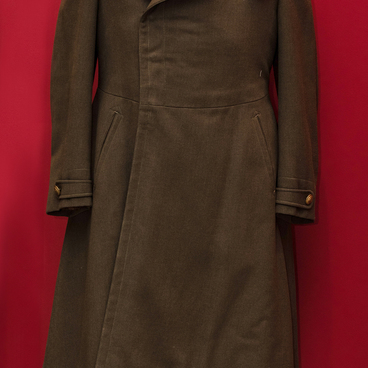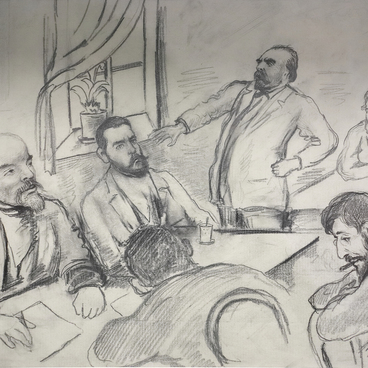The Moscow Sovremennik Theater opened in 1956. It was a creative association of recent graduates of the Moscow Art Theater School under the guidance of eminent actors: Evgeny Evstigneev, Galina Volchek and others. Having formed a team under the name ‘Studio of Young Actors’, the troupe began to work on a voluntary basis, sharing responsibilities: Oleg Tabakov, for example, was responsible for organizational matters, and Oleg Efremov took over the artistic leadership. In 1958, the theater acquired the name Sovremennik (‘The Contemporary’), but continued to be considered a studio. Sovremennik received the status of the Moscow city theater in 1965, along with funding, a clear schedule, and a building of its own on Chistye Prudy.
The theater evolved during the so-called ‘thaw’. At that time, artists and directors had more creative freedom and the ability to stage modern, often provocative performances. Sovremennik was the first theater to stage plays by Alexander Volodin, Eugene Schwartz, Leonid Zorin, Mikhail Roshchin and other playwrights, who today are considered theatrical classics. Works by Victor Rozov were among its repertoire as well. It was his play Eternally Alive that formed the basis of the very first performance of Sovremennik in 1956.
The museum’s collection includes a poster for the Traditional Reunion performance based on the play by V.Rozov, which was staged in Sovremennik in 1967. Initially, the play seemed too simple for the actors, but Oleg Efremov insisted on the production after remolding the plot: the heroes of his play were going to have a reunion 20 years after graduation. According to Efremov himself, he staged the Traditional Reunion “so that the people who came to the theater would look at themselves, think about how they have lived their lives, and maybe their life would improve a bit”.
In 1970, Efremov was offered to take command of the Moscow Academic Arts Theater, and he agreed, taking most of the Sovremennik stage company with him. Galina Volchek became the new artistic director of the theater. Sovremennik enrolled new playwrights, for example, Alexander Vampilov and Vasily Shukshin, and its repertoire started to include classical Russian plays as well. The stage company was joined by Liya Akhedzhakova, Konstantin Raikin, Marina Neyolova, Yuri Bogatyrev, Valentin Gaft and other famous actors. The plays staged back in the 1970’s are still being successfully performed on the stage of Sovremennik.
The theater evolved during the so-called ‘thaw’. At that time, artists and directors had more creative freedom and the ability to stage modern, often provocative performances. Sovremennik was the first theater to stage plays by Alexander Volodin, Eugene Schwartz, Leonid Zorin, Mikhail Roshchin and other playwrights, who today are considered theatrical classics. Works by Victor Rozov were among its repertoire as well. It was his play Eternally Alive that formed the basis of the very first performance of Sovremennik in 1956.
The museum’s collection includes a poster for the Traditional Reunion performance based on the play by V.Rozov, which was staged in Sovremennik in 1967. Initially, the play seemed too simple for the actors, but Oleg Efremov insisted on the production after remolding the plot: the heroes of his play were going to have a reunion 20 years after graduation. According to Efremov himself, he staged the Traditional Reunion “so that the people who came to the theater would look at themselves, think about how they have lived their lives, and maybe their life would improve a bit”.
In 1970, Efremov was offered to take command of the Moscow Academic Arts Theater, and he agreed, taking most of the Sovremennik stage company with him. Galina Volchek became the new artistic director of the theater. Sovremennik enrolled new playwrights, for example, Alexander Vampilov and Vasily Shukshin, and its repertoire started to include classical Russian plays as well. The stage company was joined by Liya Akhedzhakova, Konstantin Raikin, Marina Neyolova, Yuri Bogatyrev, Valentin Gaft and other famous actors. The plays staged back in the 1970’s are still being successfully performed on the stage of Sovremennik.

